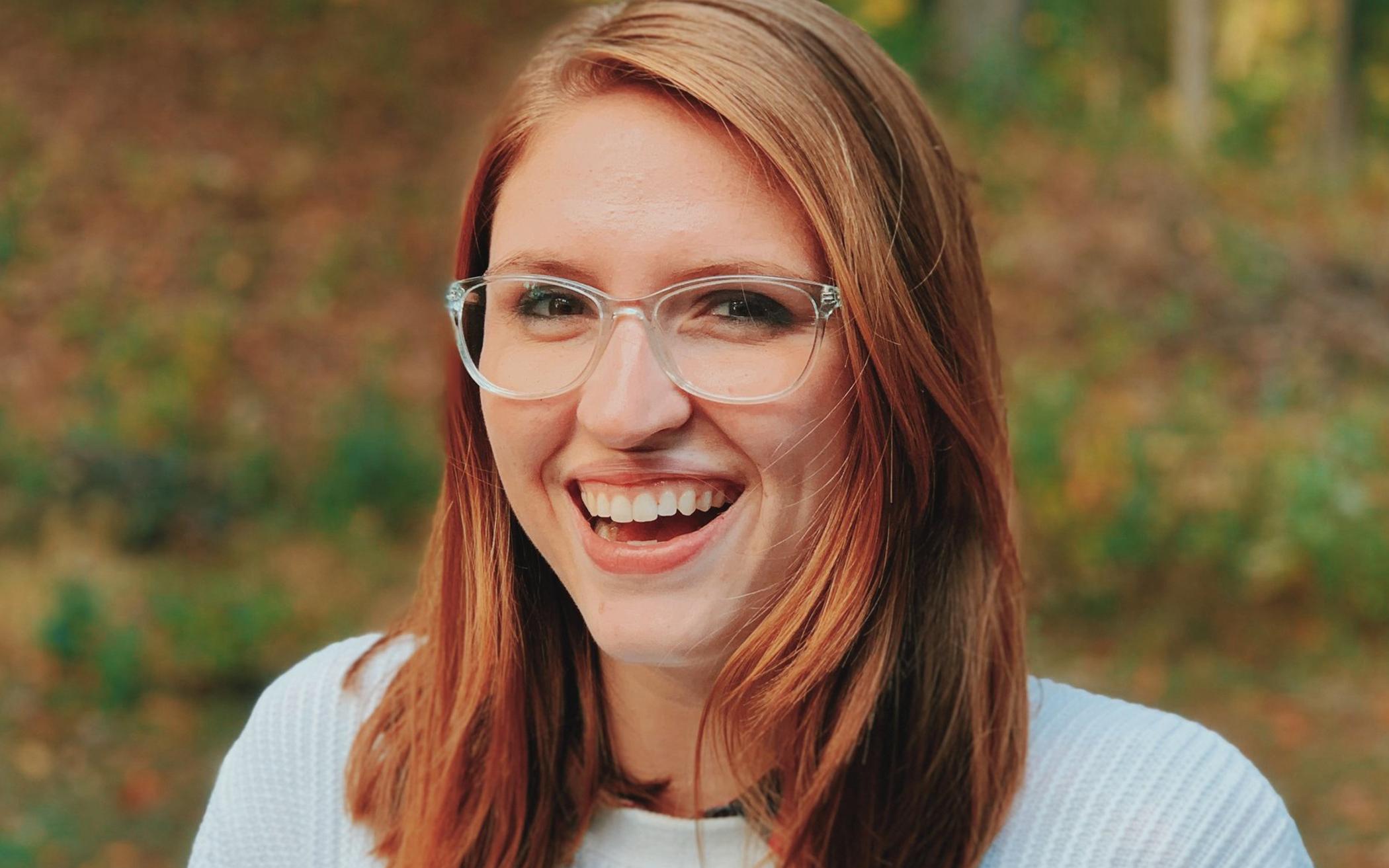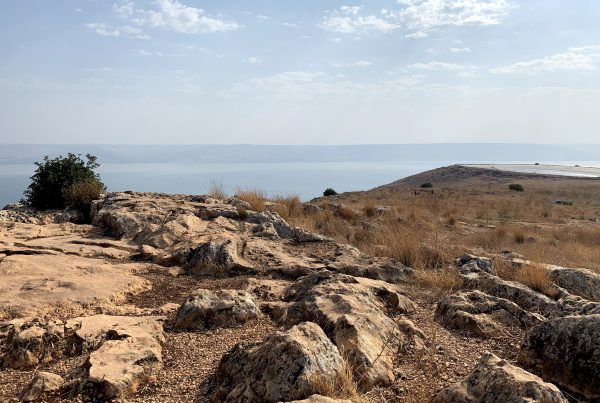The Reformed Church in America collaborates in many ways with the Christian Reformed Church in North America; two are highlighted in this article from the Banner, which is reprinted with permission.
When you consider your church congregation, how active are the young adults? How involved are they in the conversations of your church? In what areas of church life are they participating? These types of questions are ones with which every congregation should engage.
As two Christian Reformed Church in North America staff members we have been seeing these questions play out in different areas of ministry.
Becky Jones, communications specialist with Disability Concerns and Safe Church Ministry:
As a young adult, I watched the church I grew up in disband, and many other young adults fell away from the church as a result. As a child I would often visit my grandparents’ church. Their membership consisted primarily of seniors. I watched their membership naturally decline as members passed away. As a congregation, they had ignored the need to reach out to the younger population within their community. By the time I was a young adult, their church had been torn down, and now a seniors residence stands in its place.
Unfortunately, these kinds of stories are not unfamiliar to many of us. Aging congregations are a common theme across North America. As a result, addressing how we can support and equip our youth is a conversation we all must engage in. These conversations intersect with conversations we must have about disability inclusion.
Within the Christian Reformed Church, both Disability Concerns and Faith Formation Ministries value the faith formation of people of all ages and abilities. Disability Concerns encourages congregations to intentionally remove barriers that keep people from being able to participate. Faith Formation provides tools and coaching to congregations to help them walk alongside people at all stages and ages of their faith journeys.
Here are some ways in which these ministries have leaned into this conversation and developed training specifically geared to embracing and supporting our young people.
How Disability Concerns Expands the Conversation on Youth
Today, people under 30 expect public spaces and institutions to be accessible and welcoming in every way. They desire inclusion and fair treatment of everyone and have grown up with education systems that understand and respond to this value. Unfortunately, they are often disappointed by what they see and experience in their churches.
“The unique perspective of young adults is vital if we want to have thriving churches now and in the future,” said Lindsay Wieland Capel, director of CRCNA Disability Concerns. “With this in mind, Disability Concerns is using a planning framework called the Horizon Storyline to establish a process to engage and train young adults in disability advocacy.”
At the beginning of August 2021, almost 100 people came together over two days to be challenged by the question “Who’s missing in my church?” They explored this question through the lens of disability, acknowledging the fact that if churches fail to meet accessibility standards from a physical and attitudinal point of view, young people who have grown up with an expectation of access will turn away from the church.
Following this training event, Disability Concerns partnered with RCA Next Generation Engagement to develop and implement the Disability Advocacy Journey (bit.ly/disabilityadvocacyjourney), a yearlong project aimed at equipping youth for the work of disability advocacy.
Together, this cohort of disability advocacy participants are learning from dynamic activists such as Cyndi Jones about historical and current experiences of people with disabilities, meeting local practitioners and activists who have been urging their regional areas to make improvements, and discovering how they can turn their passion into action.

At last year’s Disability Concerns leadership conference, Zoie Clarise Sheets, a scholar, speaker and consultant who has a disability, shared about her experiences as a young adult with the disability community.
The DAJ model has led to an ongoing training module called “Equipping Pathways to Engage Young Adults in Disability Advocacy.” In cohorts of four or five, seasoned disability advocates guide young people through three one-hour online sessions, using a variety of media resources to teach the basics of advocacy. Prework is assigned for each session, and upon completion participants are invited to engage in ongoing advocacy efforts through the Disability Concerns network. (To learn more or to sign up, email disability@rca.org or disability@crcna.org.)
“We’re encouraged by these creative approaches that speak to young people and challenge us all to recognize and support them for ministry today and tomorrow,” said Rev. Terry DeYoung, coordinator for RCA Disability Concerns. “For too long we have disempowered young people and discriminated against disabled people, and it has harmed the body of Christ. Dismantling these practices requires courage and creativity, and RCA Next Gen staff have welcomed this opportunity to collaborate with Disability Concerns in the challenging work of raising up new generations of advocates to help our churches become places where everybody belongs and everybody serves.”
How Faith Formation Ministries Joins RCA Partners to Invite Youth Into Church Leadership
Megan Herrema, communications coordinator with the Office of Social Justice and Faith Formation Ministries:
In addition to equipping young adults with disability advocacy skills, the ongoing process of becoming churches where everybody belongs and everybody serves includes inviting youth into the leadership of the church. One way to do that is through intergenerational mentoring. Generation Spark, a joint initiative of the CRCNA and the RCA, helps mentors and mentees to work together on a solution to a problem in their church or community.
Before churches launch intergenerational mentoring, team members from CRCNA Faith Formation Ministries and RCA Next Generation Engagement facilitate a training process. Ministry leaders from CRC and RCA churches in the U.S. and Canada involved in the current cohort of Generation Spark met virtually for the first time Jan. 25, 2022.
“The ministry leaders who are learning about mentoring are deeply committed to serving their young people well,” said Rev. Annalise Radcliffe, coordinator for RCA Next Generation Engagement. “This is essential when participating in Generation Spark. It’s elevating the voices of all people, including those who are heard less often.”
The cohort participants continued training through February and March. After completion, they were encouraged to launch intergenerational mentoring at their church when appropriate and to invite people of all ages at their church to participate.
“When people hear that we’re working with young leaders,” Radcliffe said, “they often assume that we’re working only with young leaders. Intergenerational relationships formed through a process like Generation Spark work to create relationships across generations. The impact reverberates beyond the relationship. It forges empathy, good listening skills, compassion, and energy to love others in the community. We’ve seen these relationships elevate young leadership and help congregations better serve their neighborhoods. Young people feel recommitted to their congregations, all because they have a close relationship with someone at the church who shows up, listens, and is willing to learn.”
Working in collaboration, our ministries can pair their unique focuses and strengths to fulfill our biblical calling and directions from Synod.
“Synod gave Faith Formation Ministries a broad mandate that describes the kind of discipleship and faith-formative work we are to engage through five adjectives: intentional, lifelong, intergenerational, missional, and holistic,” said Rev. Chris Schoon, Ph.D., director of Faith Formation Ministries. “We’ve realized that this mandate encourages us—maybe even expects us—to collaborate with others like Disability Concerns, Safe Church, and the Office of Social Justice, especially as we lean into the missional and holistic aspects of our calling.”
“Beyond Accessibility: Involving Young Adults So That Everybody Belongs, Everybody Serves, March 16, 2022” Copyright © 2022 The Banner, Christian Reformed Church in NA. All rights reserved. Used by permission. // TheBanner.org





